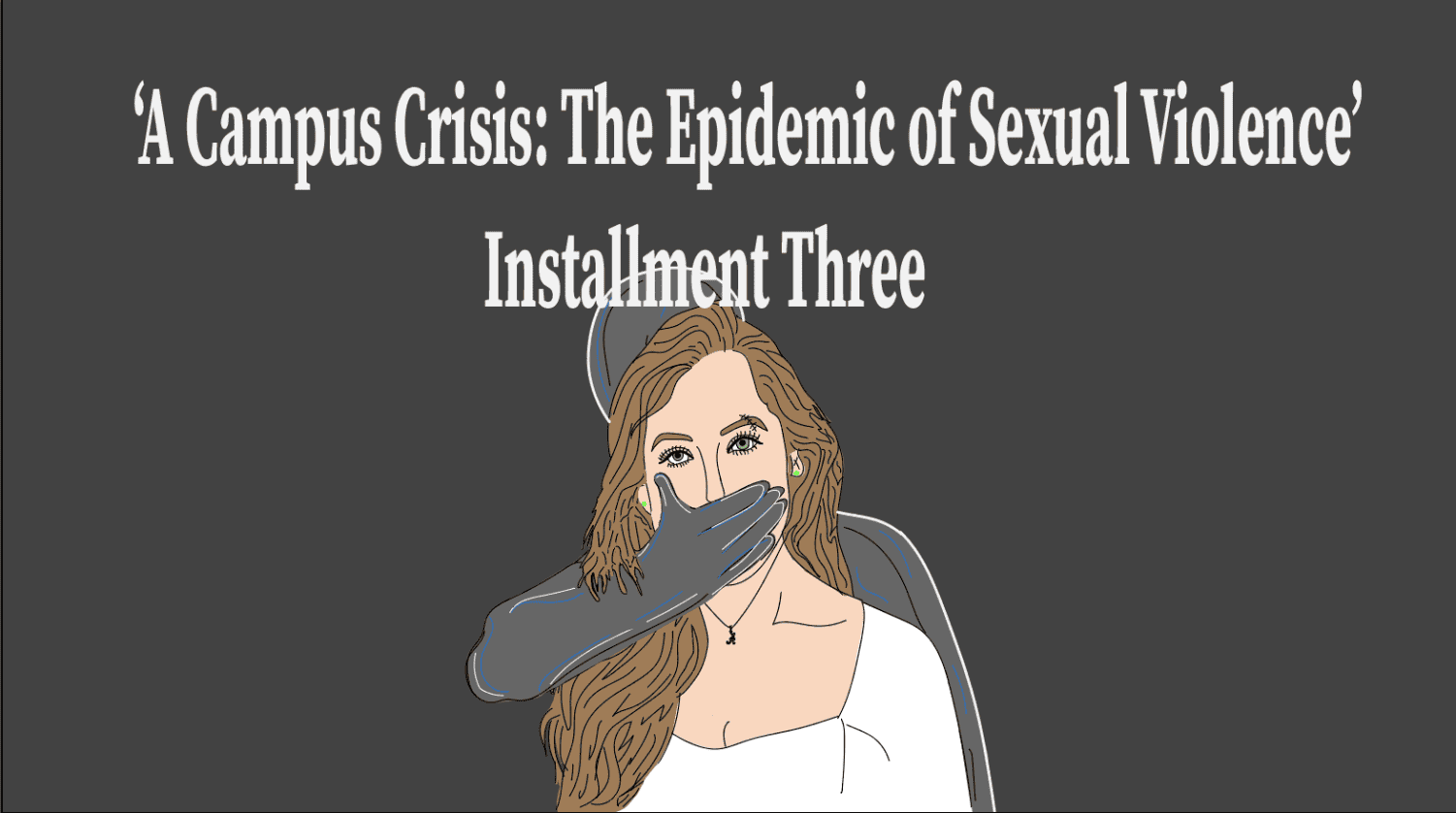Opinion | ‘A Campus Crisis’ Installment Three
This is the third installment in a five-part series about rape and sexual assault on college campuses. Over the course of this series, readers will hear from organizations dedicated to combating sexual violence on The University of Alabama’s campus. This installment highlights Men Against Rape and Sexual Assault, a group “founded three years ago with the goal of engaging more male leaders on campus in discussions about sexual assault and interpersonal violence prevention.”
July 7, 2021
Men need to be active participants in eliminating rape culture
To learn more about the series and the story that inspired it, click here.
The UA community does not have to look too far in its past to understand the hurt and tragedy that comes from sexual assault.
In July 2015, UA student Megan Rondini was sexually assaulted. The psychological trauma that endured from her assault and her fruitless search for justice ultimately led Megan to take her own life in 2016.
There are many more cases of sexual assault that will go unreported and uninvestigated on campus every year, month, week and day. No one should ever have to experience the harsh realities of sexual assault, and they should never have to do it alone.
There is not yet justice for Megan Rondini. No lawsuit, no financial settlement, no criminal charge can ever bring her back. No punishment placed on her alleged assailant, T.J. Bunn, Jr., can reverse the irreparable damage inflicted upon her. Megan is gone, and that can never change.
Every individual who contributed to her life being cut tragically short — from Bunn to local law enforcement to UA officials — has blood on their hands. They must be held accountable for the result of their actions.
To deny this is to dishonor Megan’s legacy and the hundreds of thousands of people nationwide who are victims of sexual assault every year.
The death of Megan Rondini was a tragedy, but a preventable one. In reviewing the facts of her story, one sees a narrative of inaction and malintent. There are dozens of people who — by taking a stand, by following proper protocol, by telling the truth — could have prevented this assault from happening or ensured that it would not go unpunished.
Through their refusal to act, their intentional concealment of the truth and their insistence on discrediting Megan, they pushed her story toward its harrowing conclusion. Megan’s experience highlights the importance of prevention in the fight against sexual assault.
The way we can honor her is by preventing sexual assault. Rather than victim blaming, we should solve this issue at its source.
Men Against Rape and Sexual Assault was founded three years ago with the goal of engaging more male leaders on campus in discussions about sexual assault and interpersonal violence prevention. Men have long viewed these issues as taboo and ignored them. MARS believes that it is far past time for male leaders on campus, and everywhere, to step off the sidelines and take action in the fight against sexual assault.
That isn’t to suggest that we claim to have all the answers and solutions to the complex epidemic that lies within a culture of rape or that we should be celebrated as champions of women. MARS does not wish to see the voices of men drown out the powerful voices of women already wholeheartedly engaged in the fight.
We are proud to partner with some of these powerful voices in organizations on campus and in Tuscaloosa, including Not On My Campus, the Women and Gender Resource Center and the Tuscaloosa SAFE Center. It is our goal to reach our male peers, to listen to those powerful voices with open ears and open minds, and to motivate others to work actively to prevent sexual assault.
MARS believes that the power to create meaningful change starts with education and awareness. Through the education of our peers, we can effectively spread awareness about sexual assault and interpersonal violence.
Our education of our peers is threefold: teaching men to recognize the signs of interpersonal violence, caring for those who have experienced assault or abuse and holding perpetrators of sexual assault accountable. With this work, we hope to honor the legacies of all survivors of interpersonal violence and work toward a future that prevents stories like Megan’s from becoming a reality.
The primary way that we work to create meaningful change is through our interpersonal violence training sessions. Our training sessions are meant to be conversations instead of presentations. The PowerPoint is only there to aid the discussion.
After introducing our organization and its purpose, we present data to show the scope of sexual assault on our campus and around the country. Then, we form a groundwork of understanding for the group. Many people might not be familiar with the language used to discuss topics like interpersonal violence or rape culture.
After discussing the general issues, we dive into the actions that make up the problem. Sexual assault, dating/domestic violence, stalking, sexual harrasment and trauma are all discussed so that the tangible problems can be understood.
The training also teaches attendees how to be effective bystanders. We all know that bystander intervention is hard to train, so we bring in audience perspectives and encouraged them to share their experiences as bystanders.
The current spotlight on sexual assault on college campuses has raised awareness among students of its insidious presence. We hope that it will also hold universities accountable for the social cultures they tolerate on their own campuses.
Toxic masculinity has become so blinding that men on our campus don’t feel the need to listen to the voices of women. Creating an environment of responsible and respectful men on campus requires having difficult conversations about sex and gender roles. This is exactly what the members of MARS aim to do.
Awareness: Spread awareness about interpersonal violence prevention.
Allyship: Encourage men toward allyship with victims of sexual assault.
Accountability: Hold other men accountable for their actions, and speak truth to power in the pursuit of justice.
We have waited for far too long while those around us have suffered. It is time for us to step away from the sidelines and become active participants in eliminating rape culture from our campus and community.

